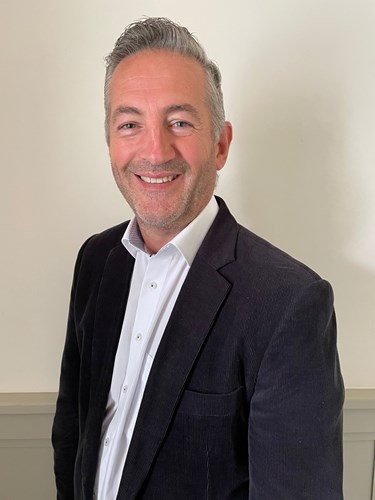26 August 2021 – As concern about climate change continues to grow and drive systemic changes, addressing carbon emissions has become a key sustainability objective for an increasing number of corporations as they look to futureproof their businesses. For some, this has meant investing in external carbon reduction projects to offset their own emissions. Others are looking a little closer to home.
The practice is called “carbon insetting” and involves corporations adopting emissions reduction strategies or projects within their own value chain to lessen their impact on the planet. This also allows companies to keep their sustainability spending within the organisation and gives them greater control and oversight over their emissions projects compared with traditional offsetting.
For leading international chocolate maker Barry Callebaut, this approach is one of the pillars of their “Forever Chocolate” plan, which aims to be carbon and forest positive by 2025. And with dairy making up almost a quarter of its total carbon footprint, this area has been identified as a major focus for the company’s sustainability initiatives.
One such initiative was a recent study with Swiss feed additive producer, Agolin and Gold
Standard, a carbon reduction verification provider, to investigate, measure, and validate
CO2-equivalent methane reduction in dairy cattle as a result of feed additives. Feedinfo
recently sat down with Agolin’s Commercial Director, Michael Roe to find out more about
the results of this collaboration and what they mean for dairy producers.
[Feedinfo] How did the partnership with Barry Callebaut come about and in what ways is this breaking new ground for them (and Agolin)?
|
[Michael Roe] Barry Callebaut initially reached out to Agolin in order to explore the |
|
[Feedinfo] What can you tell us about the scope of the pilot studies which have already been concluded?
[Michael Roe] When we set about developing a workable solution it was important to both companies that dairy farmers would also see a benefit to being part of any solution. Two pilot studies involving 65 farms and over 15,000 cows were established in order to develop the methodology for the concept, one in the Netherlands and the other in the United States. These pilot investigations were important in that they provided us with feedback from the producers themselves as to how well they believed the methodology was working. We had a very positive response from the producers themselves and were able to demonstrate an average reduction of 1,200 metric tonnes CO2 – eq. in studies that took place within a twelve month period in the Netherlands and a 500-tonne reduction in the US by August of 2020, also over twelve months. Of course, these carbon savings are important as any reduction in enteric methane emissions and feed efficiency savings can influence the impact of agriculture and our food on the environment and climate change. Methane is 25 times (IPCC-2003) more potent in the atmosphere as a greenhouse gas than CO2, so any reduction in emissions is very welcome.
[Feedinfo] What does it mean to have Gold Standard involved in developing a methodology to measure and validate the methane reductions which can be derived from Agolin?
[Michael Roe] Gold Standard is recognised as a leading global developer and verifier of
methodologies for industrial projects such as this one. It was important to have their expert involvement in order to ensure that we were operating a methodology of the highest standard. Since our foundation in 2006, Agolin has been involved in many research projects and studies to evaluate the benefits of feeding Agolin Ruminant to dairy and beef animals and these studies, both published and unpublished, have shown an effect on milk production, feed efficiency and methane. At a daily feed inclusion rate of only one gram per head, Agolin has this effect, and a recent published meta-analysis of the work confirms this (Belanche et al. Animals Journal, April 2020).
[Feedinfo] Are there plans for Barry Callebaut to roll out this programme on a permanent basis? And if so, what would the timeline be?
[Michael Roe] Barry Callebaut has a global presence and reach. They plan to expand the
methodology and programme to different regions in the short and medium term and in line with their own objectives and Agolin will assist them on this journey.
[Feedinfo] How does Agolin see this partnership/study impacting its growth strategy for Agolin Ruminant?
[Michael Roe] We see the area of sustainability within the food industry as being an
important opportunity for us, not just because it represents opportunities for us to grow our business, but also because it means that Agolin can play its part in the change that is
happening within our food chain globally. Population growth will place greater demands on production, and we must continue to find ways to produce our food in a less damaging way to the environment. We are always looking for new ways to achieve this and our R&D is focused on this. We do not lose sight of the fact that our roots are based in research-led evidence to support our products and the production benefits and improved efficiencies we see our many customers enjoy continues to be our mainstay.
[Feedinfo] What other studies or research projects is Agolin currently involved in? What
can we expect from the company in the near future?
[Michael Roe] We continue to invest in research and are currently working on a number of projects with several major institutes in Europe and the US in order to further develop our portfolio of products, not just in dairy but also beef, swine and poultry in the area of performance and environment. Our philosophy of being a research-rooted company will ensure that we will continue to work in this way in the development of more plant-based solutions for food producers in a progressive agricultural environment where innovation is key to success.
Published in association with Agolin

 Michael Roe
Michael Roe

